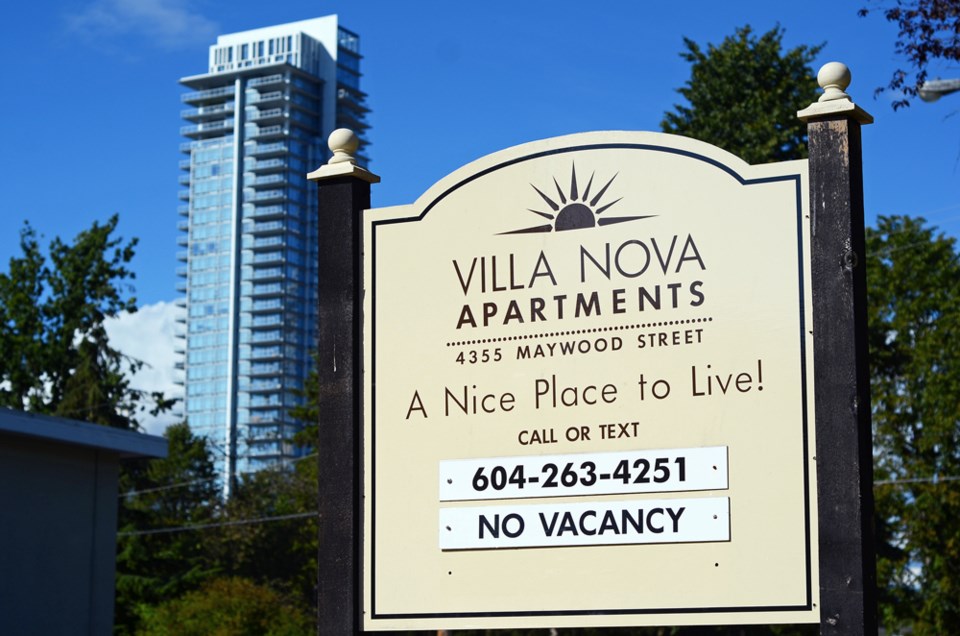As vacancy rates have shrunk and rents soared, Burnaby has lost more purpose-built market rental housing over the past six years than any other Metro Vancouver municipality.
Since 2010, Burnaby has seen a net loss of 478 units, while Vancouver has added 2,227, according to Canada Mortgage and Housing Corporation (CMHC) data.
That stat, included in a housing presentation at a Vancouver city council meeting this summer, prompted a jab from Coun. George Affleck on Twitter.
“Wow. Vancouver can’t build all the rental units alone,” he tweeted. “Our neighbours need to step up too.”
The only other Metro municipality besides Burnaby to see a net loss of units was White Rock, which shed 25, and Affleck said some communities aren’t doing enough to make sure rentals are built.
“Each city should be doing whatever they can to certainly not lose rental housing,” he told the NOW. “I just don’t think that’s good community building to lose rental housing.”
Supply and demand
While the issue is complex, UBC real estate economist Thomas Davidoff said the supply of rental units does impact the price of rent in the region.
“When you build more units you’re absorbing people who are willing to pay a lot to live here,” he said, “and the more you build, the less willing to pay you have to be to cross the threshold into occupancy.”
Vancouver has added to its market rental stock over the past decade by hanging on to existing stock and through policies like Rental 100, which provides incentives for developers to build rentals, according to Davidoff.
“I think Burnaby’s a quite different environment,” he said.
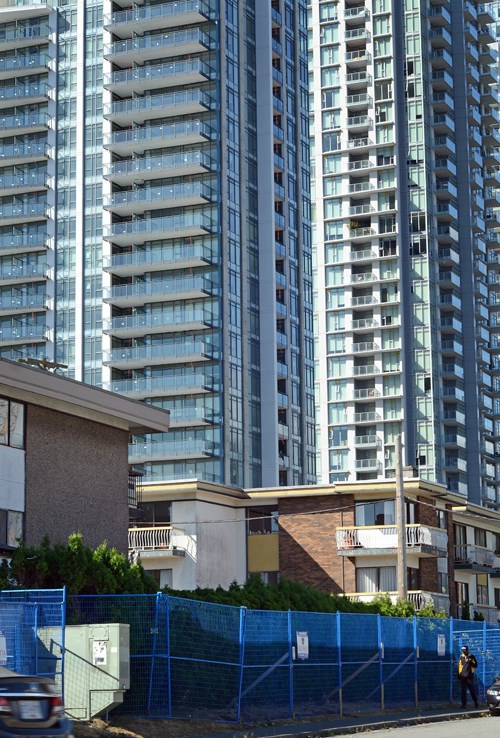
David Goodman, founder of the Goodman Report, a resource on trends in rental apartment sales, agreed.
He has criticized Vancouver for not doing enough to encourage developers to build new purpose-built market rental housing but said that city is “light years” ahead of Burnaby.
“It’s a philosophical and political decision: let the province and the feds look after rental housing; it’s not our job,” Goodman said of Burnaby. “In the process, of course, Burnaby has certainly enriched their coffers with hundreds and hundreds and hundreds of millions of dollars from the development community.”
Burnaby ended the 2016 fiscal year with more than $1 billion in reserve funds, and a chunk of that has come from developers who pay for increased density when they build condo towers in place of old low-rise apartment buildings.
The city could afford to forgo some of that money, according to Goodman, and use it to provide incentives to developers to build rentals instead of allowing the city to become “top heavy” with condos, an approach he said impacts the “social fabric” of the community.
“The irony is, here is sort of an NDP government in Burnaby who are basically saying, ‘Not our problem. You want rentals? Let the market do it,’” Goodman said.
But the market is unlikely to “do it,” according to UBC's Davidoff.
“People really want to build condos in this day of extremely high valuations,” he said. “Why be a landlord and go through all the hassle, when you can build a building, get paid a fortune and walk away. That’s what I’d do, definitely. The only reason I wouldn’t is if the city was like, ‘Well, we’ll give you an incentive if you keep it rental.’”
Incentives
Unlike Burnaby, neighbouring New Westminster has a policy specifically designed to make building purpose-built market rental housing more attractive to developers.
Its Secured Market Rental Housing Policy, adopted in 2013, grants developers breaks on parking requirements (one parking stall can cost a developer $25,000 to $35,000 to build) and increases in density in return for the developers agreeing to build secured market rental housing units.
The city further streamlines approvals for projects with secured market rental housing and picks up the tab for the legal costs involved in drawing up rental housing agreements – with the city aiming for 60-year agreements, according to acting manager of planning John Stark.
“All those tools are available. I guess it all depends on the policies and priorities of council,” Stark said.
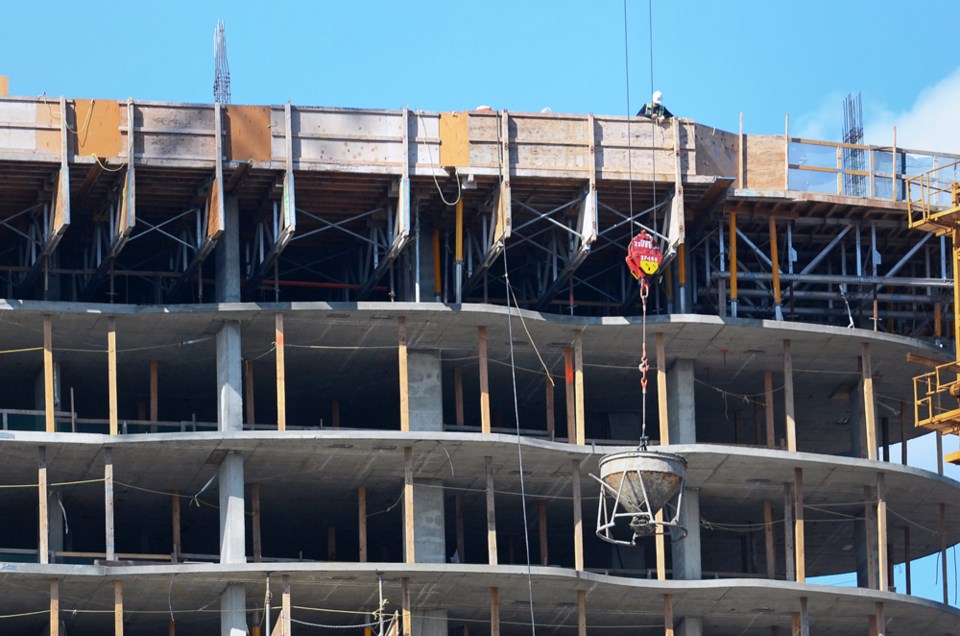
While Burnaby saw a net loss of 478 purpose-built market rental housing units from 2010 to 2016, New Westminster (with one-third of the population of Burnaby and one-fifth of its land base) added 107.
But New West isn’t just interested in building new rentals, according to Stark, since new suites aren’t as affordable as existing units.
“From a city perspective, we see the benefits of having both new market rental and also preserving the existing stock, with regards to families, new immigrants who are looking for housing, trying to create a diverse community,” Stark said.
Toward that end, Stark said New West’s mayor and council has signalled strongly to developers that it is not entertaining development applications that would result in the loss of purpose-built market rental housing – unless the older buildings need to be demolished for structural reasons.
A different approach
Burnaby, meanwhile, has been roundly criticized by housing activists for rezoning that they estimate will ultimately lead to the loss of nearly 700 old purpose-built rental units and the displacement of 1,400 people in the Metrotown area alone.
The city has chosen not to use density bonuses to encourage Metrotown developers to replace those old units with new purpose-built market rental suites as New West has done.
Instead, through its community benefit bonus policy and housing fund, the city awards density increases in exchange for community amenities and affordable or special-needs housing, which developers either build or pay for.
The policy has seen the construction of 19 low-income and special needs units and the collection of $58 million to support non-market housing projects.
The city uses the money to lease its land to such projects at reduced or nominal rates. It currently supports 302 units on seven properties and recently approved about 200 more at two other sites.
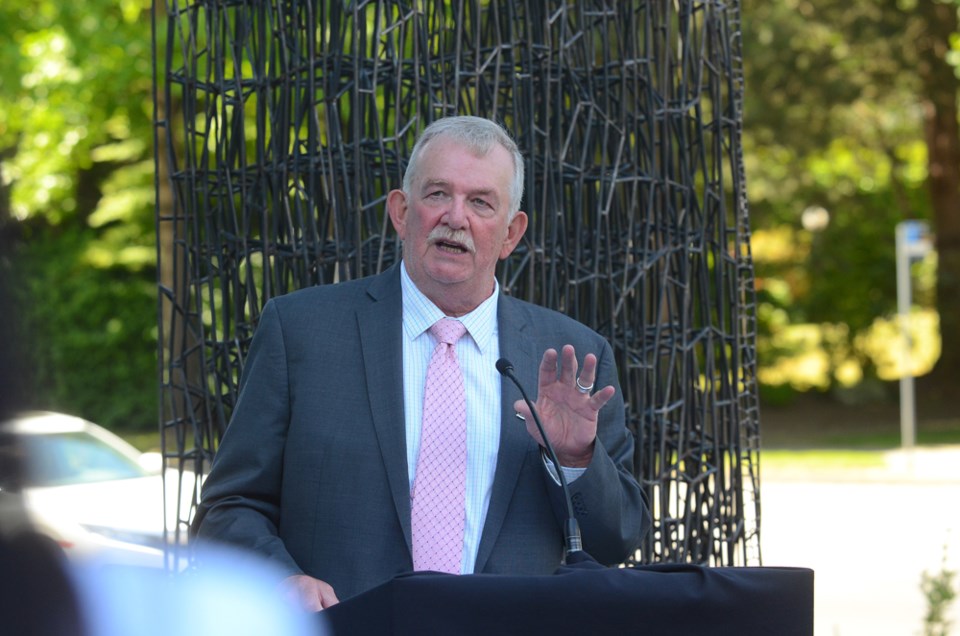
“We have not given bonus density in order to get market rental housing; we’ve only given bonus density to get non-market rental housing,” Mayor Derek Corrigan told the NOW. “We’ve made a very distinct choice in our municipality.”
This approach hasn’t produced nearly as many non-market rental units in Burnaby as the market rentals going up in neighbouring cities.
That would be impossible, according to the mayor, because non-market rentals need ongoing subsidization through partnerships with government and other agencies.
But market rental housing isn’t the city’s responsibility to subsidize, as far as Corrigan is concerned.
“We shouldn’t be taking the money that can go into building the infrastructure and the amenities that are required to serve a growing population and use it to subsidize a private entrepreneur’s development,” he said. “Why should I take a property taxpayer’s money and give it to a developer to plead with him to build market housing that he’s going to make a profit off of.”
Growing gap
It’s not like there aren’t any purpose-built market rentals going up in Burnaby.
There are currently 1,607 units in the development approval process in the city, with 1,200 in the re-zoning application stage and 407 under construction.
But the city has also approved the demolition of 749 such units since 2011 – 167 in 2017 alone.
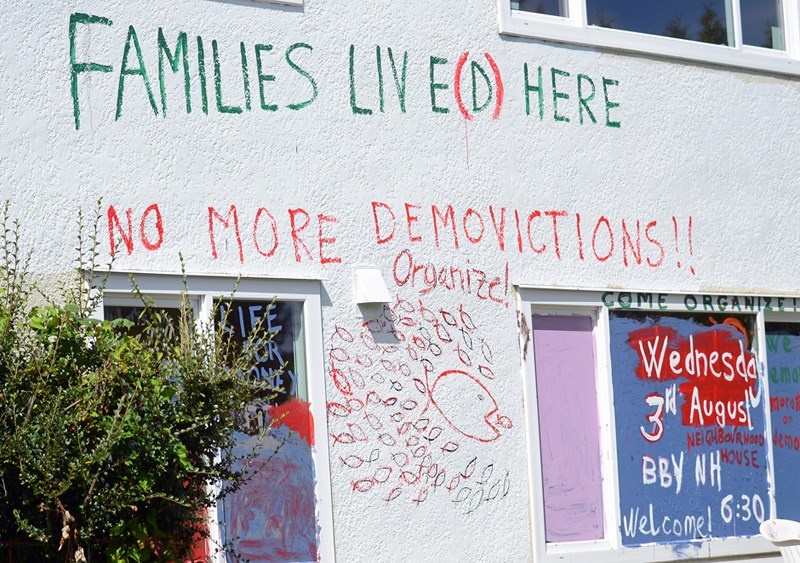
In comparison, New Westminster has 1,216 secured market rental units in the development approval process –150 approved, and 1,066 with shovels already in the ground. And, since 2011, New West has approved the demolition of only 55 units – zero in 2017.
In its 2016 housing profile, the City of Burnaby argues the 1,558 new strata units built in place of the old purpose-built rental apartments that have been demolished will add about 390 market rental units to Burnaby’s rental stock, as an estimated 25 per cent of the private investors who buy the condos decide to rent them out.
Since the owners of such units may choose to occupy or sell them at any time, however, they are a less secure form of housing than purpose-built rentals.
And Goodman said it would take about 40 to 50 per cent of owners to decide to rent out their condos to plug the gap the city is creating in the rental housing market by not incentivizing developers to build purpose-built units.
“There’s a huge gap that exists today, and in five or 10 years it’s going to be a debacle,” Goodman said. “It creates a very serious imbalance in a society where only the rich can live and you don’t have accommodation for the workers. Where are the workers going to live?”
Cities, however, don’t have the power or resources to fix those problems, according to Corrigan.
“We’re limited,” he said, “and I think because we have been a relatively rich city, there’s this expectation that we should pick up for what the federal and provincial government aren’t doing."
Terms to know:
- Market ownership: houses and condos built by private individuals, developers or for-profit companies. Sold individually and either occupied by owners or rented out as secondary rental.
- Secondary rental: houses, condos and secondary suites owned by private individuals or investors and rented out to occupants who are not the owners.
- Secured or purpose-built market rental: apartments constructed by private individuals, developers and for-profit companies for the sole purpose of renting. Typically found in multi-family buildings all under a single ownership. Suites are not strata titled and cannot be sold individually. Rental housing agreements keep them rental for a set period of time. Rented out at market rates.
- Non-market, social, subsidized or affordable: typically built by non-profit agencies with funding from government. Some is built directly by government. Historically, most non-market housing was constructed through federal/provincial partnerships with non-profit societies.
Correction: The second sentence of this story has been changed. It originally stated Burnaby had seen a net loss of 478 purpose-built market rental housing units since 2006. The correct date is 2010.
